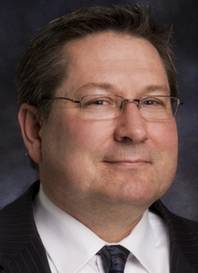
Jeff Winchester

Jill Garcia
Nevada employers required to keep workplaces safe have a new watchdog: the federal Occupational Safety and Health Administration.
OSHA isn’t new, but its permanent presence in Nevada is. The opening of a Las Vegas office in May is this year’s biggest change in enforcement of the state’s employment law, according to two local attorneys at a panel discussion on Nevada laws at the two-day Ogletree Deakens Workplace Strategies Seminar at Bellagio.
Jeff Winchester and Jill Garcia, shareholders in Ogletree Deakens’ Las Vegas office, said OSHA’s move, acclaimed by Nevada congressmen, could result in more aggressive investigations, citations, negotiations and administrative hearings.
The attorneys said opening an office is an unusual move when budgets are tight, but it wasn’t surprising because of a report that was critical of Nevada OSHA, which oversaw workplace safety in 2008 and 2009 when 25 workplace deaths occurred.
The federal government did not withdraw its approval of Nevada’s OSHA plan and take over enforcement of workplace safety as it could have done.
The problems with the state OSHA were highlighted in a series of stories that ran in In Business Las Vegas’ sister publication, the Las Vegas Sun, which won the 2009 Pulitzer Price for its effort.
“We can’t attract a major league (sports) team to Las Vegas, but we seem to be attracting a lot of federal agencies,” Winchester said. “The (Equal Employment Opportunity Commission) opened here a few years ago and a federal OSHA office is opening here now. We don’t know what the ultimate impact will be, but we expect (OSHA) will hold Nevada OSHA’s feet to the fire.”
Although OSHA didn’t dismantle the state agency, it told it and other state agencies to adopt the Severe Violators Enforcement Program, or its “equivalent” within six months. The recently announced program is an enforcement initiative.
OSHA also has said it will accept states’ referrals for investigations under the new program, which is intended to raise penalties and seek enhanced corrective measures when employers are accused of serious violations involving high-hazard activities.
The attorneys said one likely development for “garden variety” cases is an increase in serious, willful and repeat citations. Nevada OSHA is likely to rely more on the general duty concept to hold employers liable for perceived safety violations, they said.
Inspectors likely will be more aggressive and administrators less cooperative with employers during negotiations, they said. Nevada OSHA might also be less willing to offer employers the abatement option and, when abatement is offered, is likely to be more aggressive in following up on efforts.
David Michaels, OSHA’s assistant secretary, said the new office would make direct oversight of state regulators easier and more effective and allow federal officials to “provide technical assistance to the state as needed to ultimately ensure workers are better protected.”
“Workers deserve to be kept safe on the job,” Michaels said in a statement. “When we found serious deficiencies in the way ... Nevada was operating its safety and health program, it was necessary to take action.”
Senate Majority Leader Harry Reid said an office in Las Vegas had been long awaited, and it was a wait too long for construction workers who lost their lives.
“OSHA’s presence in Nevada will allow its members to work more closely with Nevada’s leading workforces, monitoring progress and ensuring only the highest safety and health standards are in practice,” Reid said. “With OSHA’s help, our state’s workplaces will adopt safer work practices, resulting in fewer accidents and less spending for accident and injury cases, making funds available to get Nevadans back on the job.”
Garcia and Winchester had other observations about Nevada workplace law:
• Budget cuts in Nevada have had affected regulation of workplace laws, Garcia said. A proposal to eliminate the Nevada Equal Rights Commission was defeated, but the agency’s budget was still cut 10 percent. “That means continued lengthy investigations,” she said. “It can be three months, six months, nine months before you hear a word, and then you get a letter that says, ‘OK, in 10 days we need you in our office.’ ” Garcia said sex-discrimination investigations are taking 290 days, “but most of the time that won’t be a full-blown investigation, that will just be a letter that comes in the mail that says ‘cause’ or ‘no cause.’ ”
• Nevada has its own two-tier minimum wage structure that enables companies to pay a lower wage if it offers certain health care benefits. Beginning July 1, the minimum wage in the state will be $8.25 an hour and, if a company offers health benefits, $7.25 an hour. Winchester said attorneys often enter the picture when companies need to determine whether their health care plans qualify for the lower rate.
• Nevada has daily overtime wage calculations. Garcia said in Nevada, a day is not measured from midnight to 11:59 p.m., but over any 24-hour period. That means a company must pay overtime to an employee who works more than eight hours straight.
• Effective earlier this year, Nevada and Massachusetts are the only states where companies must encrypt employee data if the information is leaving an employer’s secured computer system.


Join the Discussion:
Check this out for a full explanation of our conversion to the LiveFyre commenting system and instructions on how to sign up for an account.
Full comments policy